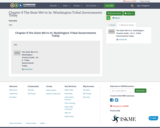
TBD
- Subject:
- Social Science
- Material Type:
- Lesson
- Lesson Plan
- Author:
- Jerry Price
- Washington OSPI OER Project
- Leslie Heffernan
- Date Added:
- 09/30/2021

TBD

Family and Consumer Sciences and Early Childhood Education (Fix with AI)
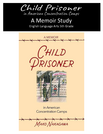
Japanese American Memorial Pilgrimages has developed lessons, supplemental resources, and educational documentary videos to accompany the memoir Child Prisoner in American Concentration Camps by Mako Nakagawa.
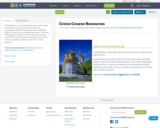
In Washington, a stand-alone high school civics course is required by a new state law.
A statewide sub-committee of OSPI's Social Studies Cadre and Walter Parker, Professor of Social Studies Education, University of Washington, drafted this list of resources in hopes that it will be useful to schools needing to create such a course or update an existing course. It is a work-in-progress.

This resource is a hub for information about teaching climate change across grade levels and content areas.
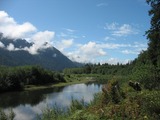
In their continued support of climate science education, the Washington State Office of Superintendent of Public Instruction (OSPI) created these resources to support K-12 teachers of all content areas integrate climate science and climate change into their instruction.

The Washington State Legislature has invested $16 million in climate science education since 2018. This portal contains links to professional learning resources and instructional materials developed by the ClimeTime network of educational partners who came together as a result of this funding. ClimeTime partners provide climate science professional learning to Washington science teachers, using innovative strategies and effective practices. Many projects also create instructional materials aligned with the Next Generation Science Standards, to support student climate science learning.

Designed specifically for Comprehensive School Counseling Program (CSCP) staff, this 5-part mini-series will guide participants through a project to address a gap that exists in their school’s student achievement, behavior, or attendance data.
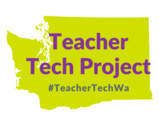
Community Building is an interactive synchronous training for teachers. It explains the importance of a classroom community and the positive effect it has on student learning. It provides many examples and opportunities for teachers to think about their class communities and how to strengthen them.

This Professional Development course sets up teachers and students to use the perimeter of their school to inquire about and monitor air quality as well as learn about emissions and activism in their community.Did you know idling cars during school pickup impacts air quality and the environment? Learn how to use an easy-to-implement action project to motivate and empower your students. Your students will build an understanding of how air pollution impacts their community and the climate and learn what community members are doing about it. They will then work together to map their findings, develop an action plan and share what they have learned.Learn how the Next Generation Science Standards Engineering Design Process and Social Studies standards can be an integral part of students working on real-world problems.Explore the social-emotional side of climate change and how direct action can foster resilience and environmental justice.Collaborate with teachers from across the region to have a collective impact on air quality and the environment.#climate science #islandwood (already searchable on text)
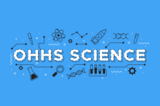
Conceptual Physics is a year-long course based on CK-12 OER instructional material and supplemented with limited commercially-available materials. The course is project-based, argument-driven inquiry. Each unit begins with presentation of an intriguing phenomenon, followed by an essential question about the phenomenon, and a project centered on answering that essential question. Throughout the unit, students conduct research and investigations to answer portions of the question. Each unit has a student "Task" at the end that serves as an assessment of the unit's concepts. At the end of each unit, students assemble all of the unit tasks and synthesize a personal final project that answers the essential question in a personal context chosen by the student.

In these short TED-style talks, Washington social studies educators share their thinking and experiences with colleagues in Washington state and around the world.
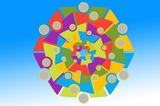
Graphic organizer to help identify Next Generation Science Standards performance expectations, three dimensions, and additional content connections in instructional materials.

Within this collection you will find lessons and handouts you can use in your classroom. You will also find a brief summary of each resource with the source sited for further exploration, appropriate grade level, approximate lesson length, and learning standards.
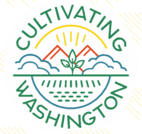
The Cultivating Washington curriculum is intended to be a go-to resource for Washington state middle school educators seeking student-centered instructional materials that make learning about the history of the Pacific Northwest more relevant and meaningful for students.In addition, it is a resource for agricultural education teachers, parents, and community members interested in helping students discover the history and development of agriculture in the state of Washington.
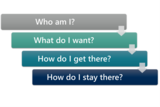
This resource from the Washington Center for Deaf and Hard of Hearing Youth provides guiding questions and resources to help student reach their full potential as they work towards their post high school and transition goals.

This website guidance document describes the Debt Slapped project, produced by Consumer Education and Training Services. Debt Slapped provides videos and helpful resource links to help people smartly finance their education.
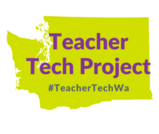
Differentiation in the Online Classroom is an interactive synchronous training for teachers. It explains why providing content appropriate for every individual is vital to students' success. This module provides ideas and methods for how to meet each students' needs.

This sequenced collection, curated by Seattle Public School educators, contains openly-licensed Digital Citizenship resources for K-5 educators.
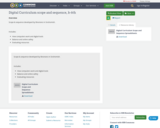
Scope & sequence developed by librarians in Snohomish. Includes: How computers work and digital tools Balance and online safetyEvaluating resources